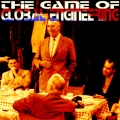| WWW,
2005 (Archived) - WASHINGTON
-- U.S. military panels reviewing the
detention of foreigners as enemy combatants
are allowed to use evidence gained by
torture in deciding whether to keep them
imprisoned at Guantanamo Bay, Cuba, the
government conceded in court Thursday.
The acknowledgment by Principal Deputy
Associate Attorney General Brian Boyle came
during a U.S. District Court hearing on
lawsuits brought by some of the 550
foreigners imprisoned at the U.S. naval base
in Cuba. The lawsuits challenge their
detention without charges for up to three
years so far.
Attorneys for the prisoners argued that
some were held solely on evidence gained by
torture, which they said violated
fundamental fairness and U.S. due process
standards. But Boyle argued in a similar
hearing Wednesday that the detainees
"have no constitutional rights
enforceable in this court."
U.S. District Judge Richard J. Leon asked
if a detention would be illegal if it were
based solely on evidence gathered by
torture, because "torture is illegal.
We all know that."
Boyle replied that if the military's
combatant status review tribunals (or CSRTs)
"determine that evidence of
questionable provenance were reliable,
nothing in the due process clause (of the
Constitution) prohibits them from relying on
it."
Leon asked if there were any restrictions
on using evidence produced by torture.
Boyle replied the United States would
never adopt a policy that would have barred
it from acting on evidence that could have
prevented the Sept. 11, 2001, terrorist
attacks even if the data came from
questionable practices like torture by a
foreign power.
Evidence Based on Torture
Evidence based on torture is not
admissible in U.S. courts. "About 70
years ago, the Supreme Court stopped the use
of evidence produced by third-degree tactics
largely on the theory that it was totally
unreliable," Harvard Law Professor
Philip B. Heymann, a former deputy U.S.
attorney general, said in an interview.
Subsequent high court rulings were based on
revulsion at "the unfairness and
brutality of it and later on the idea that
confessions ought to be free and
uncompelled."
Leon asked if U.S. courts could review
detentions based on evidence from torture
conducted by U.S. personnel.
Boyle said torture was against U.S.
policy and any allegations of it would be
"forwarded through command channels for
military discipline." He added, "I
don't think anything remotely like torture
has occurred at Guantanamo" but noted
that some U.S. soldiers there had been
disciplined for misconduct, including a
female interrogator who removed her blouse
during questioning.
The International Committee of the Red
Cross said Tuesday it has given the Bush
administration a confidential report
critical of U.S. treatment of Guantanamo
detainees. The New York Times reported the
Red Cross described the psychological and
physical coercion used at Guantanamo as
"tantamount to torture."
The CSRT panels, composed of three
military officers, usually colonels or
lieutenant colonels, were set up after the
Supreme Court ruled in June that the
detainees could ask U.S. courts to see to it
that they had a proceeding in which to
challenge their detention. They have
finished reviewing the status of 440 of the
prisoners but have released only one.
The military also set up an annual
administrative review which considers
whether the detainee still presents a danger
to the United States but doesn't review
enemy combatant status. Administrative
reviews have been completed for 161.
Boyle argued these procedures are
sufficient to satisfy the high court and the
detainee lawsuits should be thrown out.
Noting that detainees cannot have lawyers
at the CSRT proceedings and cannot see any
secret evidence against them, attorney Wes
Powell argued "there is no meaningful
opportunity in the CSRTs to rebut the
government's claims."
Leon asked, however, "if the
judiciary puts its nose into this, won't
that lead us into reviewing decisions about
who to target and even into the adequacy of
information supporting the decision to seize
a person?"
Leon said he thought an earlier Supreme
Court ruling would limit judges to checking
only on whether detention orders were
lawfully issued and detention review panels
were legally established.
Leon and Judge Joyce Hens Green, who held
another hearing Wednesday on detainees'
rights, said they will try to rule soon on
whether the 59 detainees can proceed with
their lawsuits.
|
































